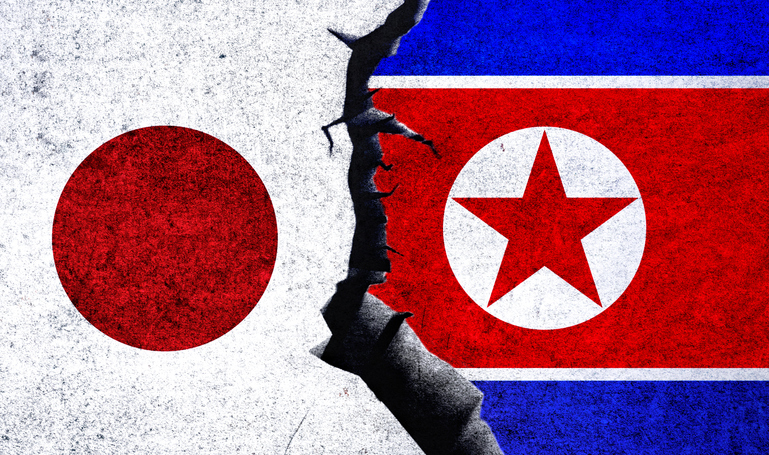Japan’s deserves some slack for its sensitivities over its wartime guilt. Others bear some responsibility for that guilt. But for Australia, as much a victim of past Japanese war crimes as most, to have sponsored an UN anti-North Korea symposium today (Friday, June 30) called by Japan in an obvious attempt to justify, or at least obscure, some of those crimes, and prepare the groundwork for future Asian wars, is, well… extraordinary.
On June 29, Canberra joined with Japan and others in sponsoring an on-line symposium to condemn North Korea for its refusal to release people it is said to have abducted from Japan in the late seventies and eighties.
It is a totally bogus issue.
When Japan first pressed North Korea on the issue in 2001, Pyongyang admitted there had been abductions, and some had since died from various accidents.
But it was willing to return the five survivors and the families they had created in North Korea.
Tokyo was delighted by this promise and in exchange offered an extraordinary document – the Pyongyang Declaration – promising North Korea normalisation of relations, extensive economic aid and diplomatic peace initiatives in north Asia in exchange for a moratorium on rocket testing.
This document was signed by the leaders of both nations in Pyongyang on September 17, 2002.
It made no mention whatsoever of efforts to find or return other abductees. In effect the issue was officially closed.
But in Japan, it seems, what is officially closed can be rudely reopened. With the ink barely dry on the Declaration. the rightwing Shinzo Abe, later Japan Prime Minister, declared he had evidence Pyongyang was holding many more abductees.
Officially they amounted to 12 persons. But there may have been many more, as much as 800 (one listed was found dead under a boat near where I live on the coast near Tokyo).
In particular they included a young 13 year old girl called Yokota Megumi, abducted presumably because she had witnessed another abduction.
But Pyongyang said she too had died after marrying and giving birth to a daughter. Her parents were welcome to come and meet the daughter but Tokyo refused permission, presumably because the daughter would contradict Tokyo’s claimed evidence that Megumi was still alive and suffering.
Ever since, Tokyo has used Megumi’s claimed existence as the basis for its claim North Korea still harbours more abductees. Megumi shrines, songs and poems and visits by her parents to US presidents, have all been created to keep her memory alive, despite the parents eventually being allowed in 2014 to visit the daughter in Mongolia. They made no mention of Megumi in their reports on the visit.
Soon after that visit I had a chance to meet one of the parents, Yokota Sakie, and asked her why there had been no mention of Megumi. She replied with some grace that she saw her mission as supporting the abductee cause.
So there we have it. A massive global campaign has been launched to demonise North Korea over the claimed abductee issue when we know that it is certain that the central personality, Yokota Megumi, is no longer alive. Any others who might be alive are now in their seventies or eighties and of no possible use to North Korea.
The North Korean Vice Foreign Minister, Pak Sang Gil, has reacted to a Japanese call for Prime Minister Fumio Kishida to meet North Korean leader, Kim Jong Un, to discuss the issue, by saying the abductee issue has already been resolved.
But a meeting to discuss other issues would be welcome. A North Korean spokesman, Ri Pyong Dok, has added sarcastically that with its persistent abductee demands Japan is demanding the ‘dead to be brought back to life.’
Unfortunately the sight of Australia together with a bunch of other Tokyo friends joining a symposium devoted to bringing the dead back to life is more than a sick joke.
The US and Japan are increasing military activities around the Korean Peninsula. The abductee narrative could well serve as a pretext for yet another senseless Asian war, and this time over an issue even more transparently wrong than weapons of mass destruction.
Gregory Clark was the first postwar Australian diplomat trained in Chinese, with postings to Hong Kong, Moscow and the UN before retiring in protest against the Vietnam War. After PhD studies at the ANU he became Japan correspondent for The Australian. A spell in Canberra’s Prime Ministers department led to professorships at Tokyo’s Sophia University and emeritus president of Tama University, Tokyo, before becoming co-founder of the very successful English language Akita Kokusai Daigaku. He has now retired to Latin America (Peru) and Kiwi fruit growing in Boso peninsular south of Tokyo.
His works include ‘In Fear of China’ (1969) and several books in Japan on education and foreign policy.
He used to speak Chinese and Russian with fluency. He now speaks Japanese and Spanish.

